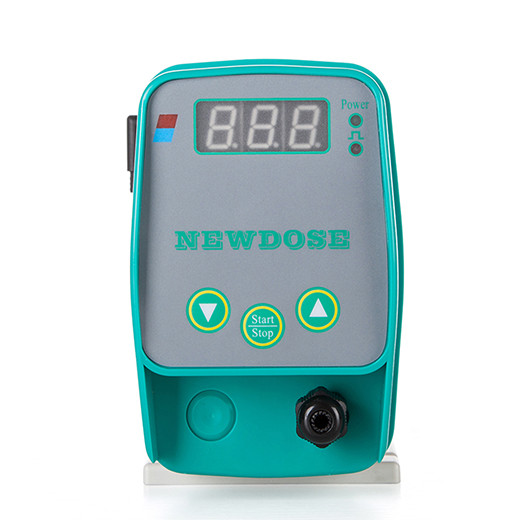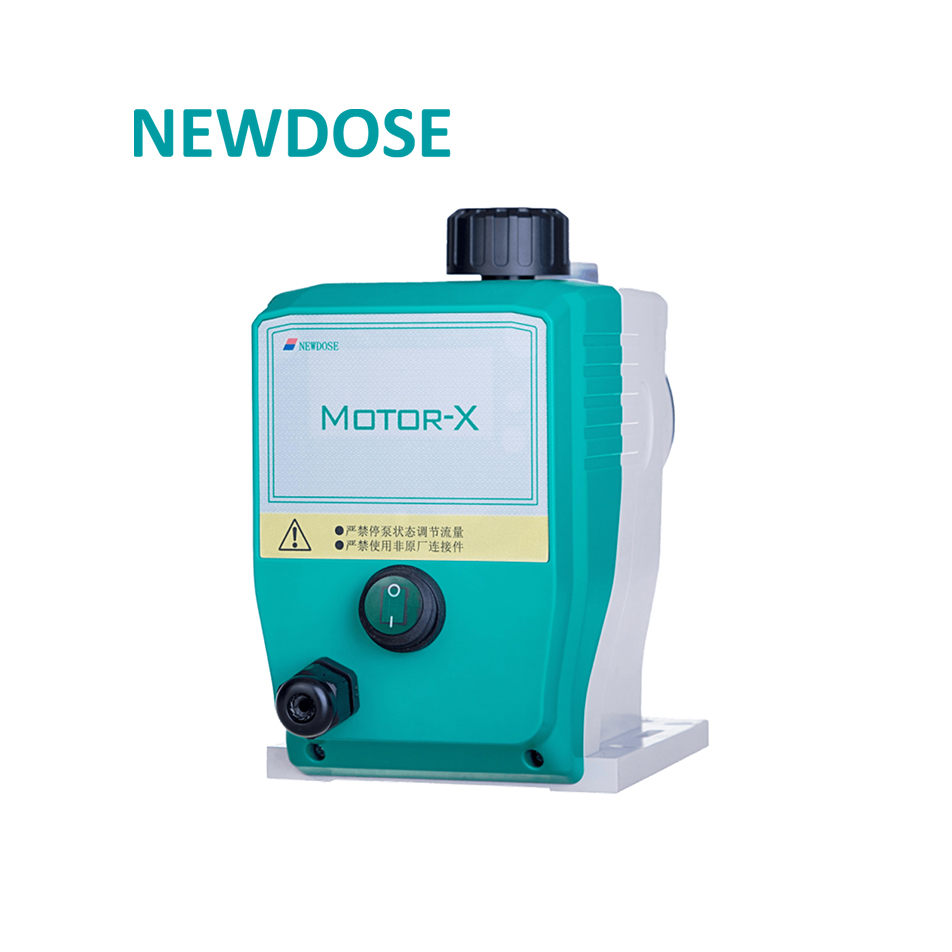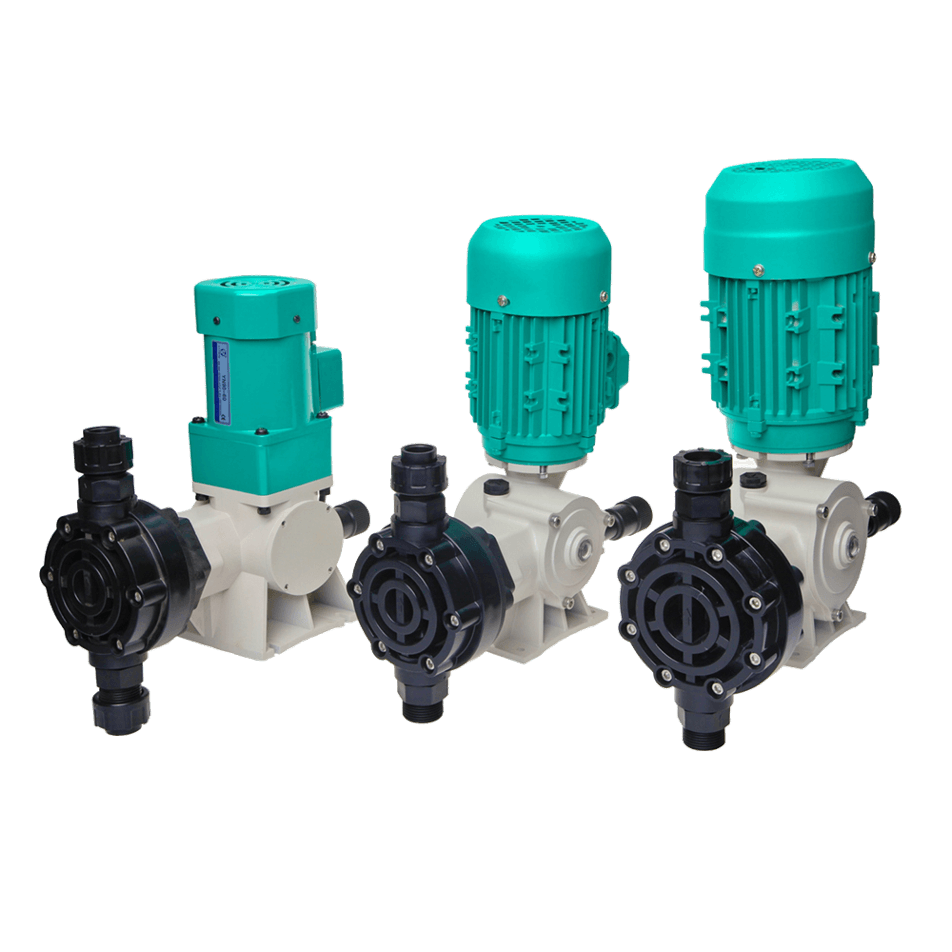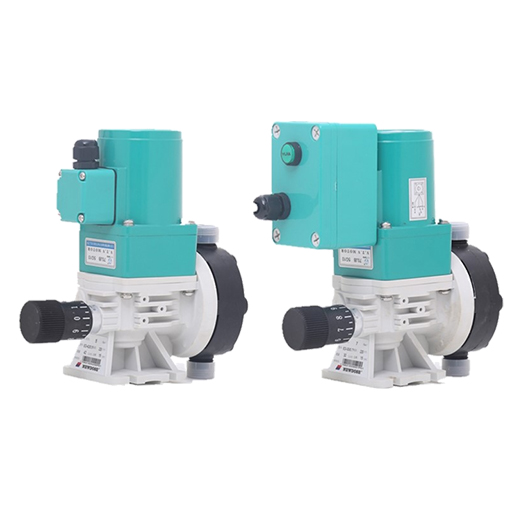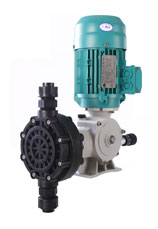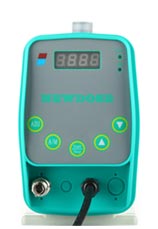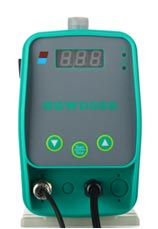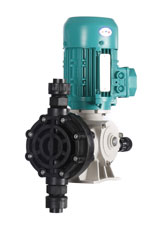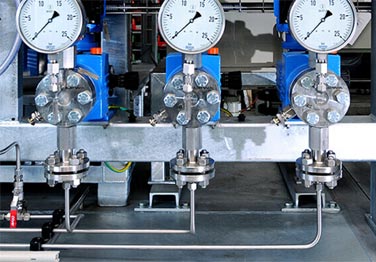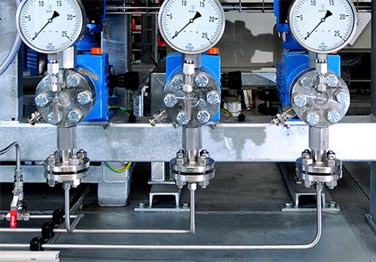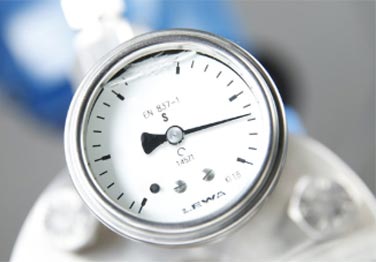How do Chemical Dosing Pumps Work?
A reciprocating membrane cap/plunger pump is used as the metering pump in most cases. A carefully determined volume of liquid is sucked in during the reciprocating stroke. This portion of the liquid will be pressed into the metering pipe during the pressure stroke. The pump settings can be modified to maintain consistent metering accuracy.
Application of Micro Chemical Dosing Pump
The dosing pumps/micro dosing pumps with small capacity or flow rate, that can achieve the precise value of the flow controlling within the volume range of milliliter flow, is an important part of chemical medicine, biotechnology, and mechanical engineering. Because of the special requirements of those fields, the stability of the dosing pumps/micro pumps is highly required. With the exquisite craft, micro chemical dosing pumps make their micro gear pumps used broadly in those fields.
Micro chemical dosing pump has advantages of wide flow range, wide viscosity range, small size, direct motor drive, few pulse, high precision, easy to adjust, corrosion resistance, and no leakage, so it's a good choice for chemical measurement.
The largest advantage of micro dosing pumps is that it has no flow pulse and pressure pulse. Gear dosing pumps adopt direct motor connection without the reciprocating motion mechanism of diaphragm pumps. Consequently, compared with diaphragm pumps, micro dosing pumps have a smaller size and higher cost-efficiency. Their flows are easy to adjust, and you just need to adjust the rotational speed of the motor to satisfy your needs.
The Difference between Micro Chemical Dosing Pump and Metering Pump
1. Different application areas
Micro chemical dosing pumps are often used in the pharmaceutical industry, drug delivery, automotive spot coating, line coating, sealing, packaging precision equipment, etc., while metering pumps are mainly used for corrosive liquid transportation, such as petrochemical, pharmaceutical, food, etc.
2. Different functions
In addition to the function of transporting trace elements, the metering pump also has the characteristics of accurate measurement.
3. The structure is different
The micro dosing pump is composed of a controller, an actuator and a syringe; while the metering pump is composed of three parts: a motor, a transmission box, and a cylinder.
4. Different advantages
The epoxy metering pump has the advantages of stable operation, no noise, small size, light weight, and convenient maintenance; the micro chemical pump has the advantages of small size and light weight, accurate injection of drugs, small amounts, and suitable for long-term micro-administration.
Which Pumps are Commonly Used for Chemical Dosing?
In order to effectively transport chemicals, high pressure must be used to overcome friction loss, but the toxic nature of chemicals also requires that leakage be minimized during efficient transmission. NEWDOSE metering pump and chemical dosing system are reliable choices for high-pressure chemical filling. The diaphragm fluid end provides safe and effective chemical delivery with only minor or no leakage. In addition, the modular design enables multiple pump heads and customized configurations to ensure that the performance is maximized in the case of small size.
 English
English  Español
Español  한국어
한국어  français
français  Deutsch
Deutsch  русский
русский  português
português  العربية
العربية  tiếng việt
tiếng việt  Türkçe
Türkçe  ไทย
ไทย 
